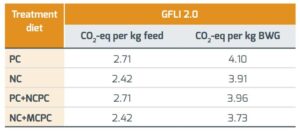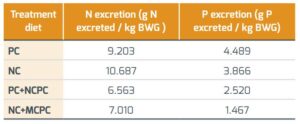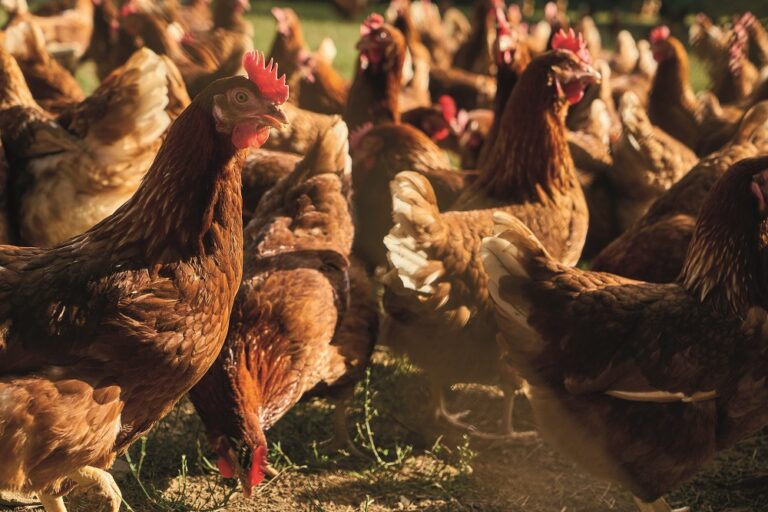By Julien Kanarek, Poultry Manager – Europe, Adisseo
The poultry sector plays a key role in feeding the growing global population, providing an affordable, nutritious protein source through eggs and poultry meat. However, the sector’s rapid growth also comes with increased environmental concerns, particularly its carbon footprint. To address this challenge, sustainability must be prioritised through innovative practices.
Despite facing challenges like avian flu, regulatory changes, and rising costs, the poultry industry has demonstrated resilience and continues to evolve. Investments in new technologies, data use, and improved nutrition are paving the way for a more sustainable future. By making improvements in animal welfare, reducing environmental impact, and increasing efficiency, the sector can meet growing consumer demands for transparency around food production.
Key to sustainability in poultry production is optimising feed efficiency. Poultry feed production contributes significantly to emissions, making it an essential focus area. By replacing high-carbon footprint feed ingredients with more sustainable alternatives and carefully formulating diets, the industry can reduce its environmental impact while boosting profitability.
Adisseo, as a leader in animal nutrition and health, has embedded sustainability into its core strategy. The company uses advanced tools like enzymes, amino acids, and near infrared (NIR) analysis to reformulate diets, ensuring better nutrient utilisation with less waste. By improving feed efficiency and bird health through targeted additives, Adisseo helps producers reduce their carbon footprint and lower feed costs. Additionally, optimising diets reduces phosphorus and nitrogen excretion, helping mitigate environmental impact caused by poultry litter.
The power of enzymes
Enzymes are powerful tools to formulate more sustainable diets. Employing a multi-enzymatic complex (MCPC, Rovabio Advance Phy), containing several carbohydrases and a high dose of phytase, has been shown to positively impact the carbon footprint of a poultry diets, as shown in a Brazilian trial by Adisseo with 1,200 Cobb 500 one-day-old male chicks. Up till 43 days of age, birds either received standard corn and soybean meal diets without enzymes (PC), a negative control diet (NC; reduced in energy, amino acids, Ca, available P and Na and without enzymes), the PC diet with MCPC or the NC with MCPC. The carbon footprint in kg CO2- eq per kg of feed was calculated using the GFLI 2.0 database.
The results, summarised in Table 1, show an 11% reduction in the NC diet (both with and without MCPC) compared to the PC and PC+MCPC diets. When the CFP of the diets is adjusted according to feed conversion ratio (FCR), the results clearly indicate that the most efficient and sustainable option is the NC+MCPC diet. This diet has a dietary impact equivalent to 3.73 kg CO₂eq per kg of BWG, which is 9% lower than that of broilers fed the PC diet (4.10 kg CO₂eq per kg of BWG). From an economical point of view, NC+MCPC was 77 € / t feed cheaper than the PC diet. When kg BWG is considered, the reduction is 0.11 € / kg BWG.
Table 1 – Carbon impact reduction per kg feed and kg of body weight gain (BWG).

Effect of enzymes on P and N excretion
Another trial, involving 280 Cobb 500, one-day-old chicks looked at the ability of MCPC to reduce the excretion of N and P in broiler production. Up till 43 days of age, birds were assigned to one of the 4 treatment diets (same diets as the earlier trial). This study showed that reducing nutrient density (NC diet) had the highest N excretion, but a slightly lower P excretion compared to PC.
When diets were optimised with MCPC, a considerable reduction in both N and P excretion was observed in the PC and NC diets (Table 2), whereby the NC+MCPC had the biggest reduction compared to the PC diet (-23.8% for N and 67.3% for P).
Table 2 – Effect of adding enzymes on the N and P excretion per kg body weight gain (BWG).

Innovating with sustainable practices
Feed production significantly impacts the environmental footprint of poultry farms, making it a key area for improving sustainability. Studies have shown that using a multi-enzymatic complex can optimise both standard and nutrient-reduced diets, reducing carbon impact per kilogram of feed and body weight gain (BWG). Enzyme supplementation also enhances feed efficiency by decreasing nitrogen and phosphorus excretion, reducing feed costs, and improving animal performance. Sustainability in poultry production requires a multi-disciplinary approach, encompassing animal health, welfare, and ecological considerations. Adisseo’s nutritional and health solutions contribute to environmental responsibility by reducing the overall environmental impact throughout the poultry production value chain.


